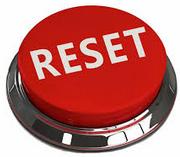2021-08-09
It has been said that the UK has no written constitution, but there are those that beg to differ, and many of those that differ refer back to our Magna Carta - the Great Charter - that has had a somewhat chequered history since first it was signed by King John.
Whether any version of this historical document still forms the foundation of our current legal system seems open to discussion, but there are many who feel that it's principles should once more be elevated to supreme position in our legal texts, if only, but crucially, because it puts our rulers in their place, not as inviolable dictators whose rules and judgements are unchallengeable, but as leaders whose rules and judgements may be overthrown by a jury in a court of common law.
So we are reminded by the DEMOCRACY DEFINED MEMBERS CAMPAIGN that not only was this principle enshrined in English law of the thirteenth century by King John, it was also already common currency across much of Europe as part of the Law of the Land, legem terræ.
So powerful was this principle of legem terræ that the founding fathers of America, many of whom fled from the British Isles and Europe precisely to escape the unchallengeable judgements of their rulers, incorporated these same principles into their own constitution when they finally claimed their independence.
Those same principles exist (perhaps now in name only, as in the UK) in many of the UK's former colonies.
We are happy to present this dissertation upon the role of trial by jury, as a reminder that much of what passes for present day legal practice may be construed as illegitimate if we accept that Magna Carta has never been (and never could be) repealed.
Is the time now ripe to think about restoring the full power of the Magna Carta principles, not only within the UK, but right across the western world?



